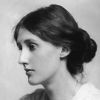“ We never weary of our state when we know none more delightful. ”
Jean-Jacques Rousseau, Emile, or On Education (1762). copy citation
| Author | Jean-Jacques Rousseau |
|---|---|
| Source | Emile, or On Education |
| Topic | state |
| Date | 1762 |
| Language | English |
| Reference | |
| Note | Translated by Barbara Foxley |
| Weblink | http://www.gutenberg.org/cache/epub/5427/pg5427-images.html |
Context
“If at first the number and variety of our amusements seem to contribute to our happiness, if at first the even tenor of a quiet life seems tedious, when we look at it more closely we discover that the pleasantest habit of mind consists in a moderate enjoyment which leaves little scope for desire and aversion. The unrest of passion causes curiosity and fickleness; the emptiness of noisy pleasures causes weariness. We never weary of our state when we know none more delightful. Savages suffer less than other men from curiosity and from tedium; everything is the same to them—themselves, not their possessions—and they are never weary.
The man of the world almost always wears a mask.”
source


